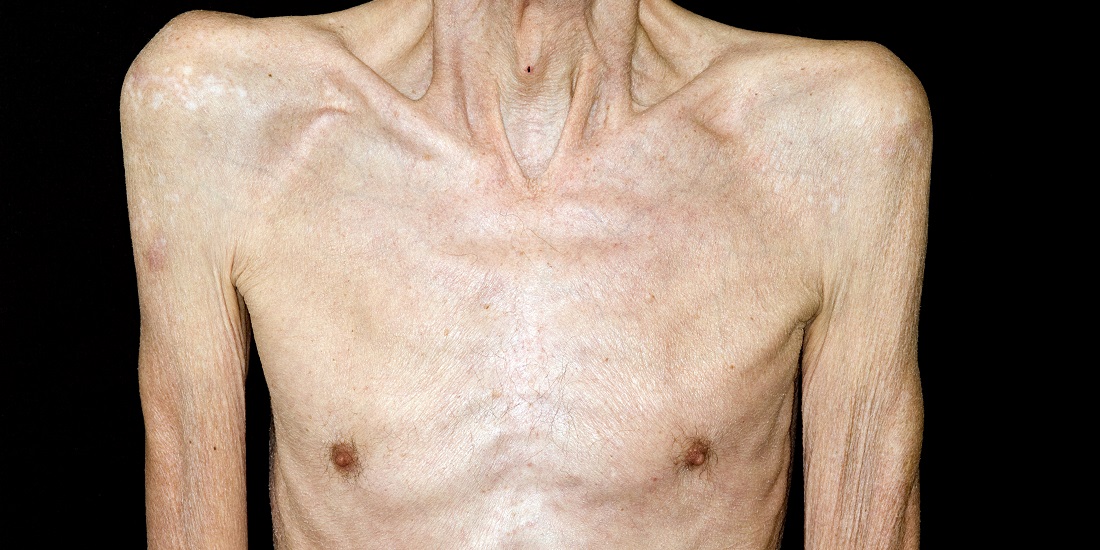Two new studies in the journal Clinical Nutrition have shown that eating more protein and having more muscle mass may help you survive cancer.
Everybody knows that eating more protein is an essential part of building muscle, and protein consumption, as well as the quality of protein consumed, is also directly related to male height, as we discussed in a recent article. One of the reasons that plant-based diets are inferior to animal-based is because of the quantity and quality of the protein they contain; plant-based brands are already realising that health and taste claims are not going to wash with ordinary customers, and that social pressure must be used to win them over.
Protein, Muscle Mass, and Surviving Cancer
Few people, though, would be likely to associate increased protein consumption and muscle mass with improved chances of surviving cancer. It’s a fact, though, that malnutrition and muscle loss (cachexia) are frequently observed in cancer patients, and this can be made worse by anti-tumour therapies, such as radiotherapy or chemotherapy.
People often forget that SARMs, or selective androgen receptor modulators, a popular class of performance-enhancing substance, were first created specifically to combat muscle and bone wastage in cancer patients.

The first study, examining the role of increased protein consumption, begins by noting that although increased protein consumption has already been linked to an increased likelihood of surviving cancer, its precise effects have not been studied in depth.
The study involved 91 patients with advanced gastrointestinal cancer (>65% tumor stage III-IV) undergoing radiotherapy, chemotherapy or surgery. Upon first oncological visit, tumor stage was assessed by a physician. Each patient’s body mass index (BMI) was measured, as well as their handgrip strength and dietary intake, using a 24hr food recall. Patients were then sorted into two groups: those with a high protein intake (>1.5g of protein per kg a day) and those with a low intake (<1.5g of protein per kg a day).
Although the study did not find an association between protein consumption and handgrip strength, it did note that higher protein intakes were associated with improved overall survival.
The authors note that low protein consumption is associated with sarcopenia (low skeletal muscle mass) more broadly, not just in cases of cancer and its treatment, and suggest that high-protein diets should be investigated as a part of future cancer treatment.
Building on the first study, the second study, from the same issue of Clinical Nutrition, investigated the relationship between sarcopenia and survival rates in patients with malignant hematological diseases (i.e. diseases of the blood), such as leukaemia, multiple myeloma and myelodysplastic syndrome.
Sarcopenia, the authors note, is already considered a predictor of disease outcome in a variety of malignant diseases. They also note that:
‘Sarcopenia can predict other clinically relevant features. For example, sarcopenic patients showed higher rates of postoperative major cardiac and/or pulmonary complications in gastric cancer. In breast cancer, patients with sarcopenia had higher toxicity under chemotherapy than non-sarcopenic patients. In colorectal cancer, sarcopenia was associated with higher incidence of total postoperative morbidity, mortality, and infection.’
Although the study did not find that sarcopenia offered a direct prediction of outcome for all the diseases, there was a clear association in the case of diffuse large B cell lymphoma.
The studies offer some further compelling evidence in support of consuming protein in excess of the laughably low recommended daily allowances (RDA) prescribed in most developed countries. The adult RDA in the US, for instance, is 0.8g / kg, which would put you well within the low protein contingent of the first study.
Of course, if you want to build muscle as well, you’re going to have to engage in resistance exercise – and you’re in the right place if that’s what you want. We recently discussed a study which showed that resistance training is the best way to stay in shape for longer, because it allows you to maintain more muscle mass for longer, at a greater metabolic cost (i.e. more calories burned).
If we were in control of the research agenda, we’d try to investigate the relationship between protein type or quality and survival rates; in particular, we’d want to ask whether plant-based or animal proteins make a difference. Our working hypothesis, given the superior amino-acid profile of animal proteins, would be that they do. Hopefully researchers will have the courage to investigate this question, which is made all the more vital by the increasingly forcefulness with which plant-based diets are now being pushed.

Try our amazing dieting and nutrition Bible, Dieting Done Right, available now from our Gumroad store.
We also offer Dieting Done Right as part of our Ultimate Nutrition Bundle, together with an amazing ketogenic diet primer and book of delicious recipes.
Check out our other products while you’re there to find the right program for you.
Don’t hesitate to email us at [email protected] for personalized coaching and a client questionnaire if you’d like DEDICATED tailor-made personal training on strength training, building muscle, losing fat, developing athleticism, and more — all to your liking, lifestyle, habits, and taste!
Otherwise, don’t forget to claim your FREE eBook detailing how to lose 20lb of fat while building muscle in 12 weeks! You can claim it here.
Alternatively, you can pick up a FREE eBook on fundamental strength principles offering an introductory workout program.












